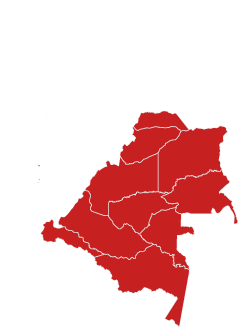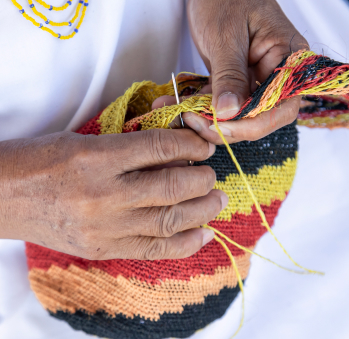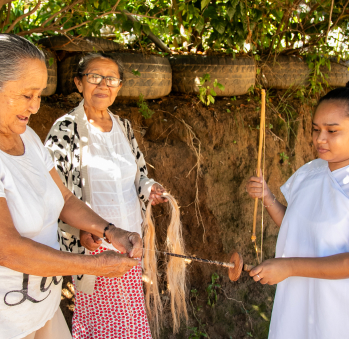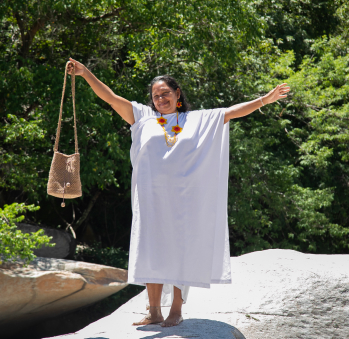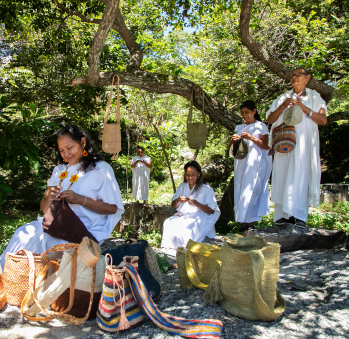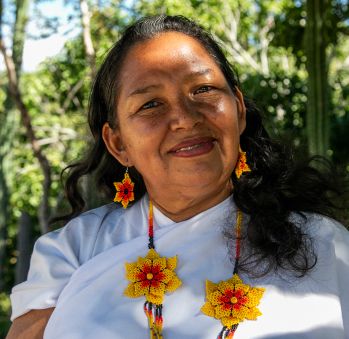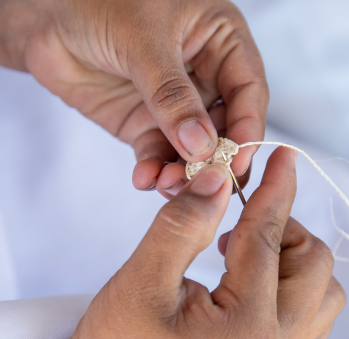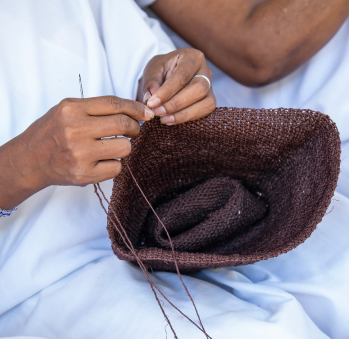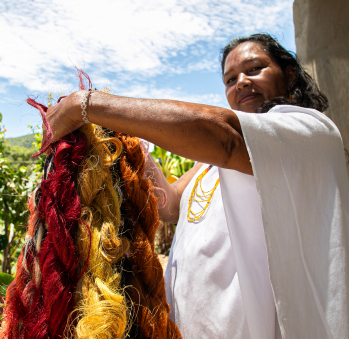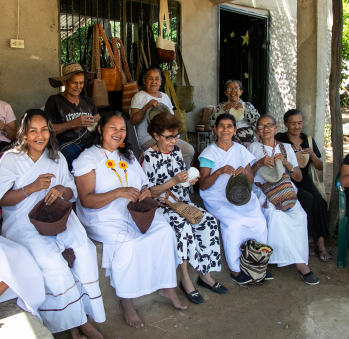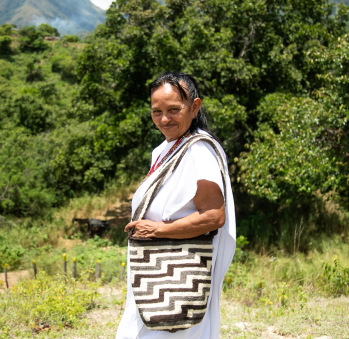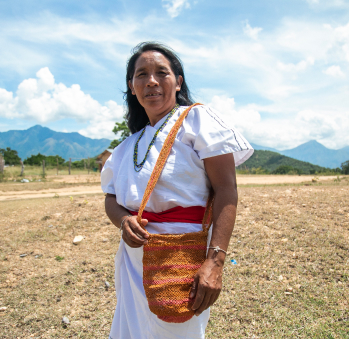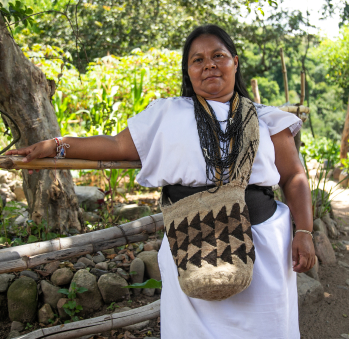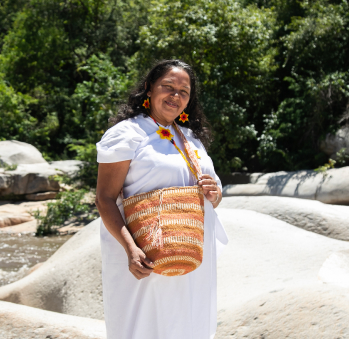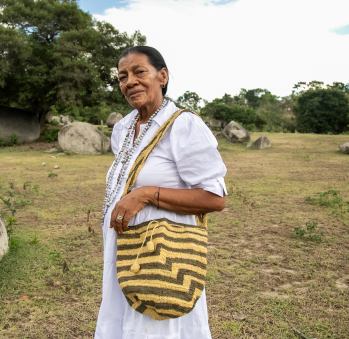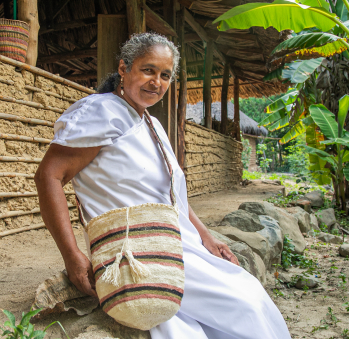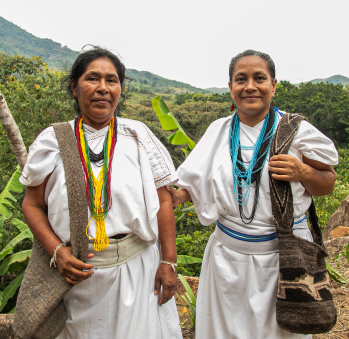Onilda Rodríguez
Workshop: Onix artesanías
Craft: Tejeduría
Trail: Cesar Route
Location: Valledupar, Cesar
When Onilda Rodríguez was eight years old, aloe hemp wasn’t cultivated in La Mina, the Kankuamo indigenous reservation where she was born and raised with her family. Hence, her mother, Sixta María Mendoza, taught her how to give her first stitches using fibers extracted from plantains, avoiding the need to waste the precious hemp. While not all fifteen of her siblings embraced the craft, Onilda’s curiosity was drawn toward every facet of the process: thread spinning, dyeing, diverse stitching techniques, and intricate designs. These bags, known as arroceras, were traded for rice.
The quintessential Kankuamo bag is fashioned from white hemp. Within them Kankuamo people carry all they need, and possessing various bags, both large and small, was customary. Onilda assures that leaving home without one’s bag is the same as walking out without hope. These bags are adequate for carrying bananas, yucca, coffee, and bread. Men house their poporos—ritual vessels—and coca leaves within them. Even children adopt the practice, wearing small bags to bring with them the little treasure they find. During the Fiesta de los Indios, celebrated on April 29th, the community convenes to fulfill their promises, and bags are worn by all.
Raised in La Mina, Onilda gave birth to her eight children—seven daughters and one son—here. In 2000, violence and the fear of war coerced their migration to Valledupar. Prior to this, Onilda had teamed up with other craftswomen, imparting diverse stitches and aniline-based hemp dyeing techniques. Once she arrived in Valledupar, they kept working together. They supported each other and she encouraged them to keep weaving and selling their bags. Upon their return to La Mina, Onilda’s artisan collective endured. Presently, they work together, distributing tasks among approximately fifty women. Some employ hemp, sheep wool, or alpaca wool, crafting bags of varying sizes or solely weaving straps.
All seven of Onilda’s daughters are well-versed in the craft. Raised in what she calls the ancestral university, they received lessons in cooking and weaving. Beyond bag weaving, they embellish their creations with seeds from their land, create necklaces, and paint fabrics. Like their mother, they pass their knowledge. At present, they manage the sale of Onilda’s work and have showcased their creations in cities such as Bucaramanga, Santa Marta, Cartagena, Cali, and Medellín, as well as countries like Chile and Spain.
A visit to Onilda and her family of artisans not only affords a glimpse of her weaving skills but also an opportunity to savor the culinary delights of La Mina. We encourage you to indulge in aguapanela or cane juice, and try the mango, yam, pineapple, and coconut sweets, as well as savor the almojábanas—which recipe Onilda and her peers are eager to preserve.
Craft
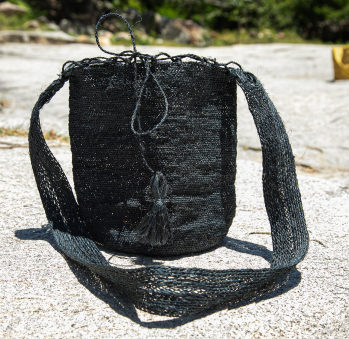
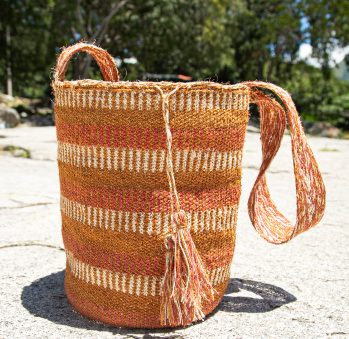
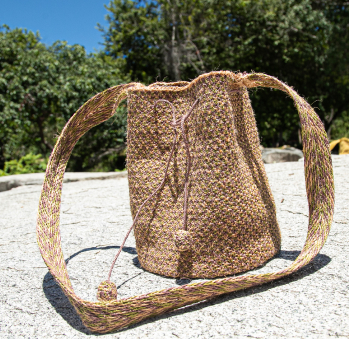
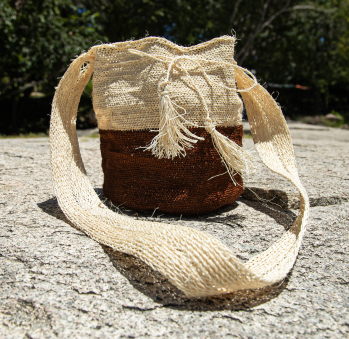
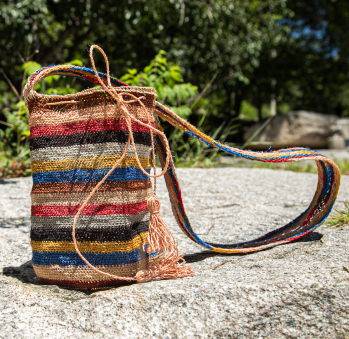
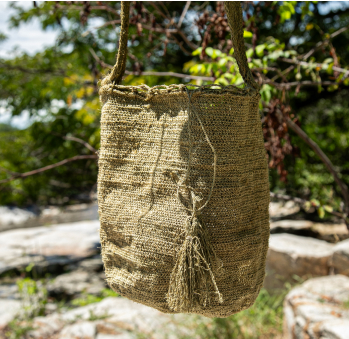
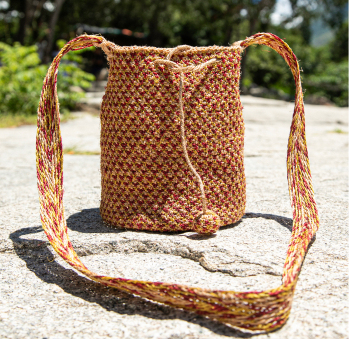
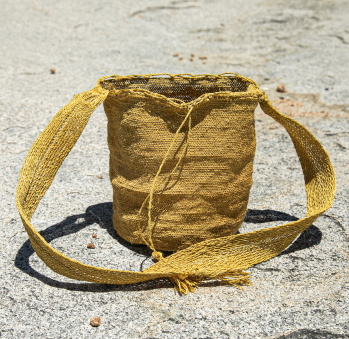








Artisans along the way
Artisans along the way
No puede copiar contenido de esta página

